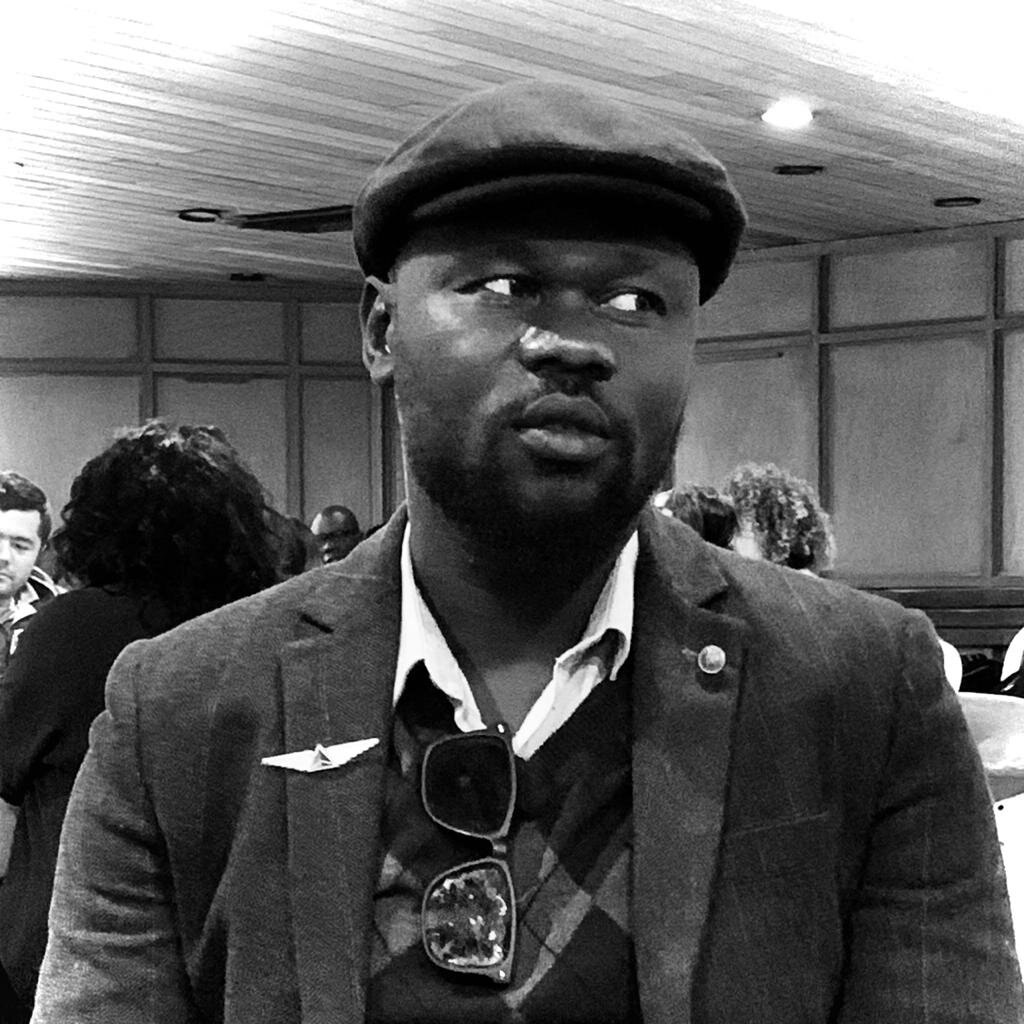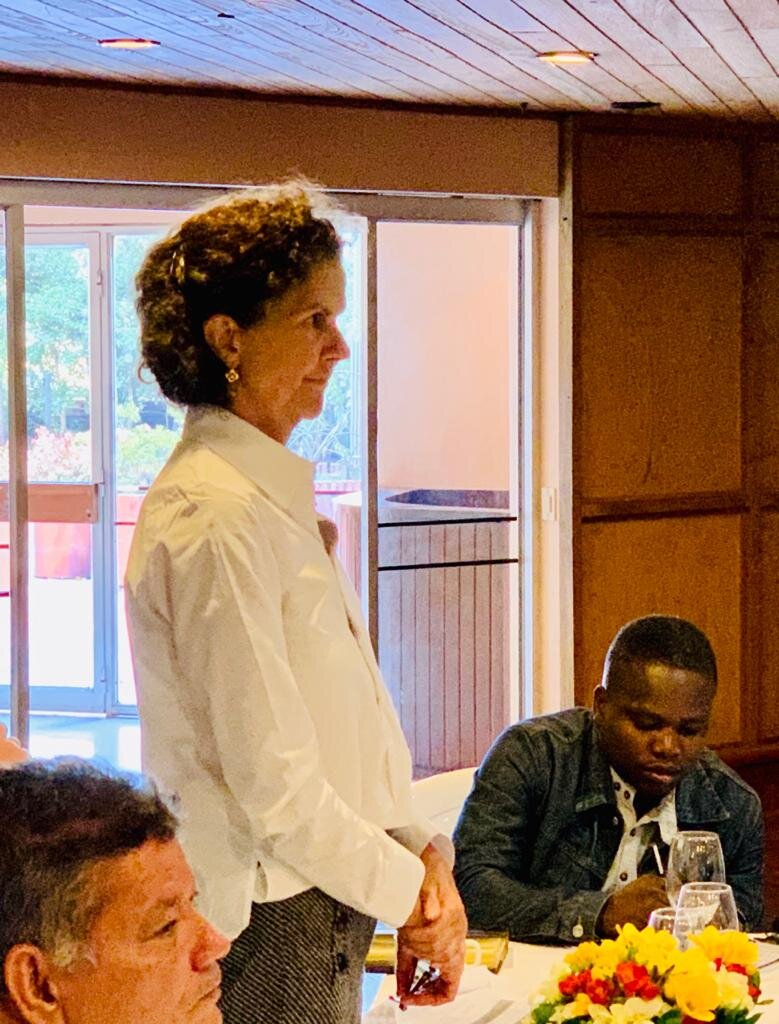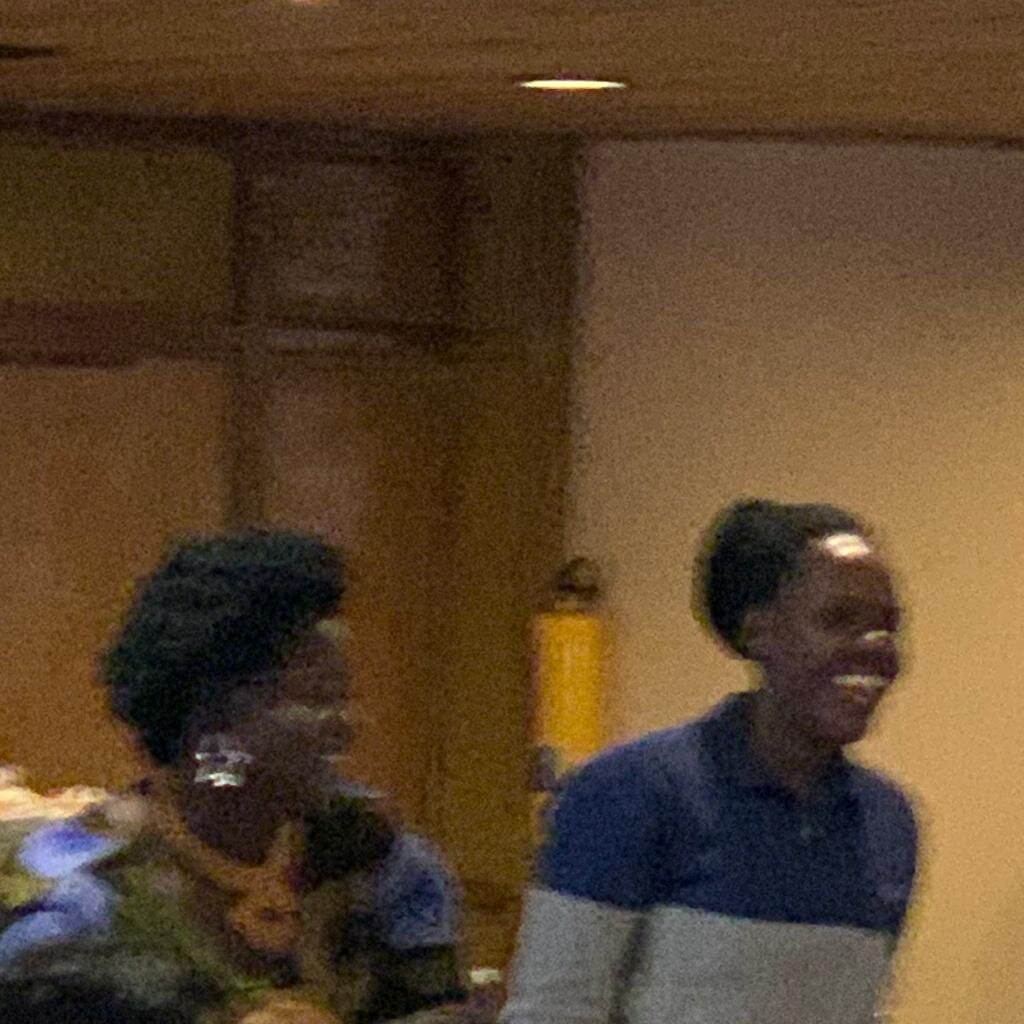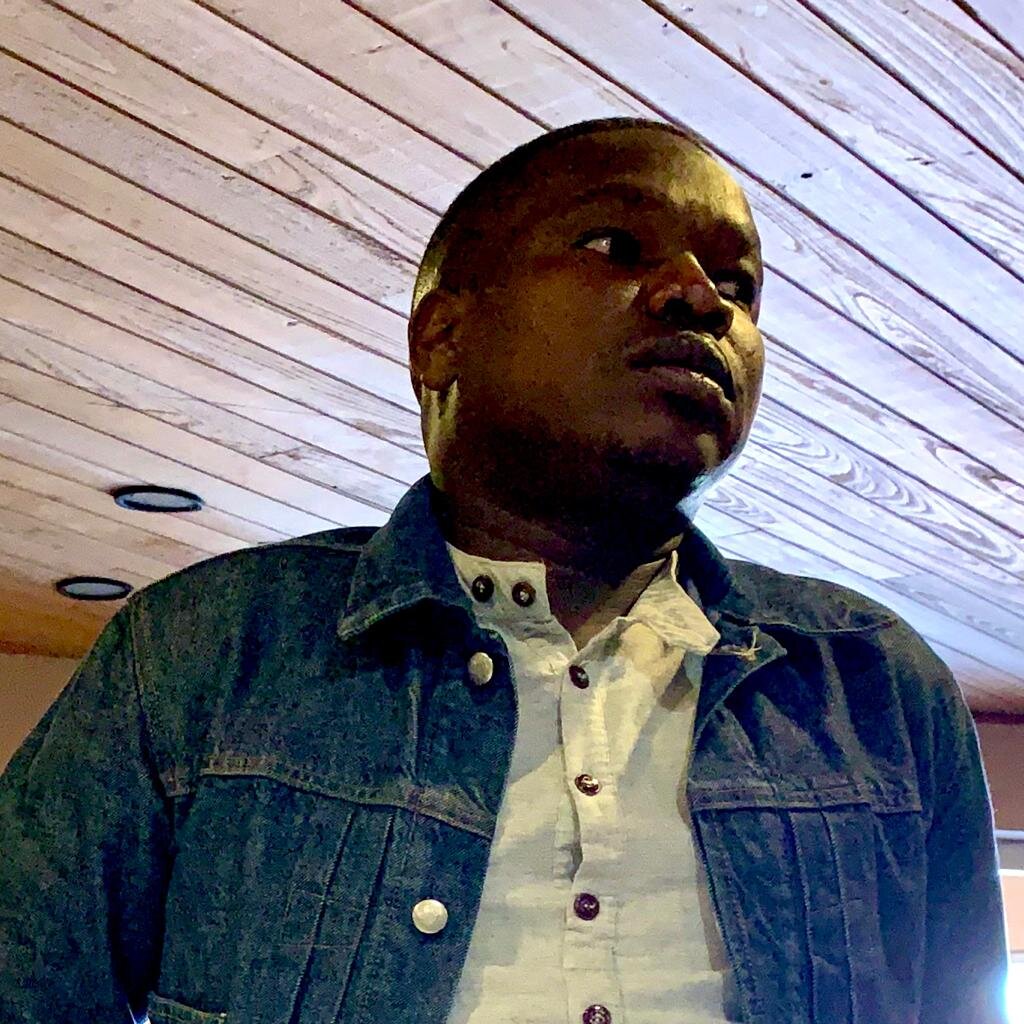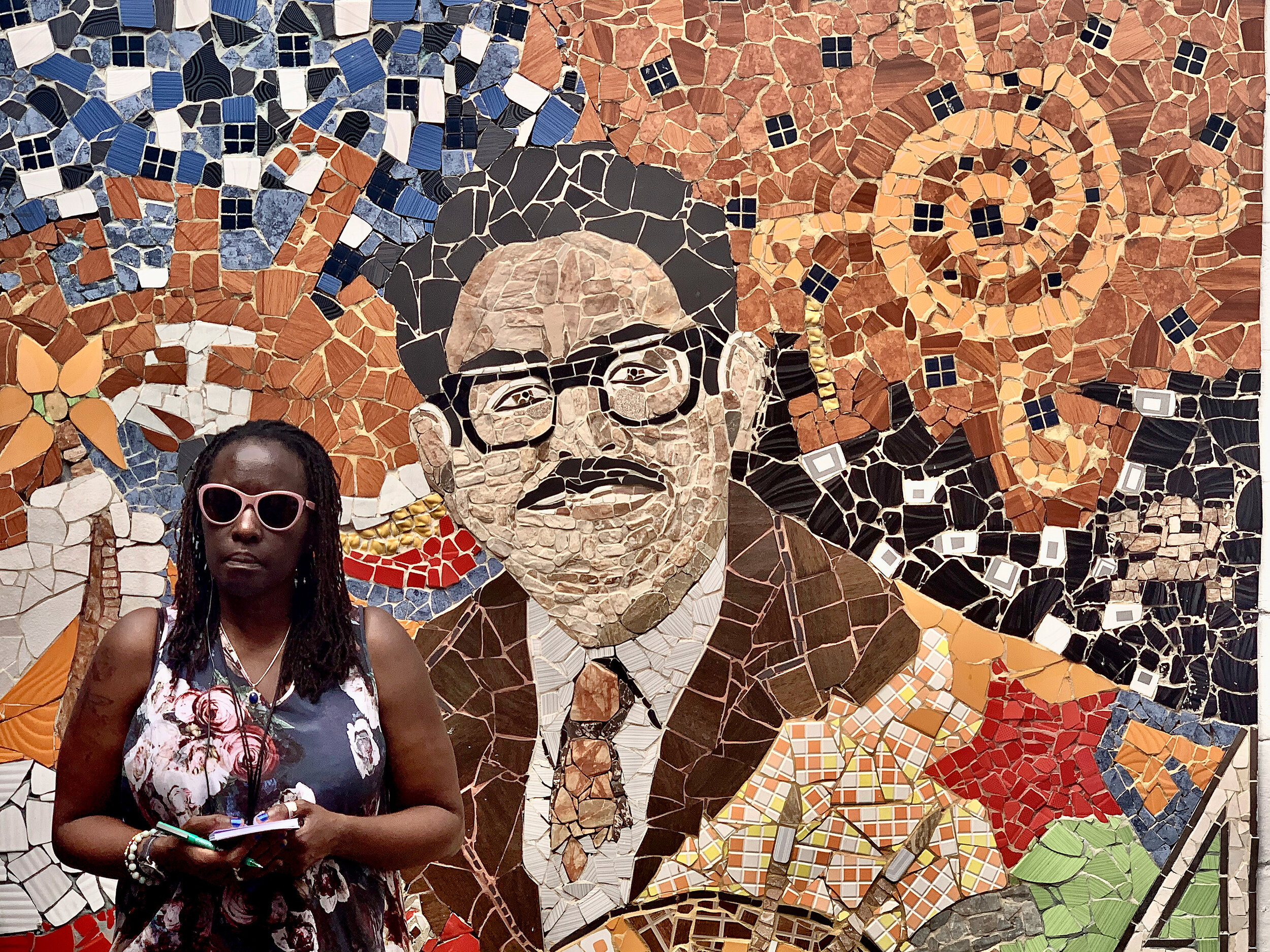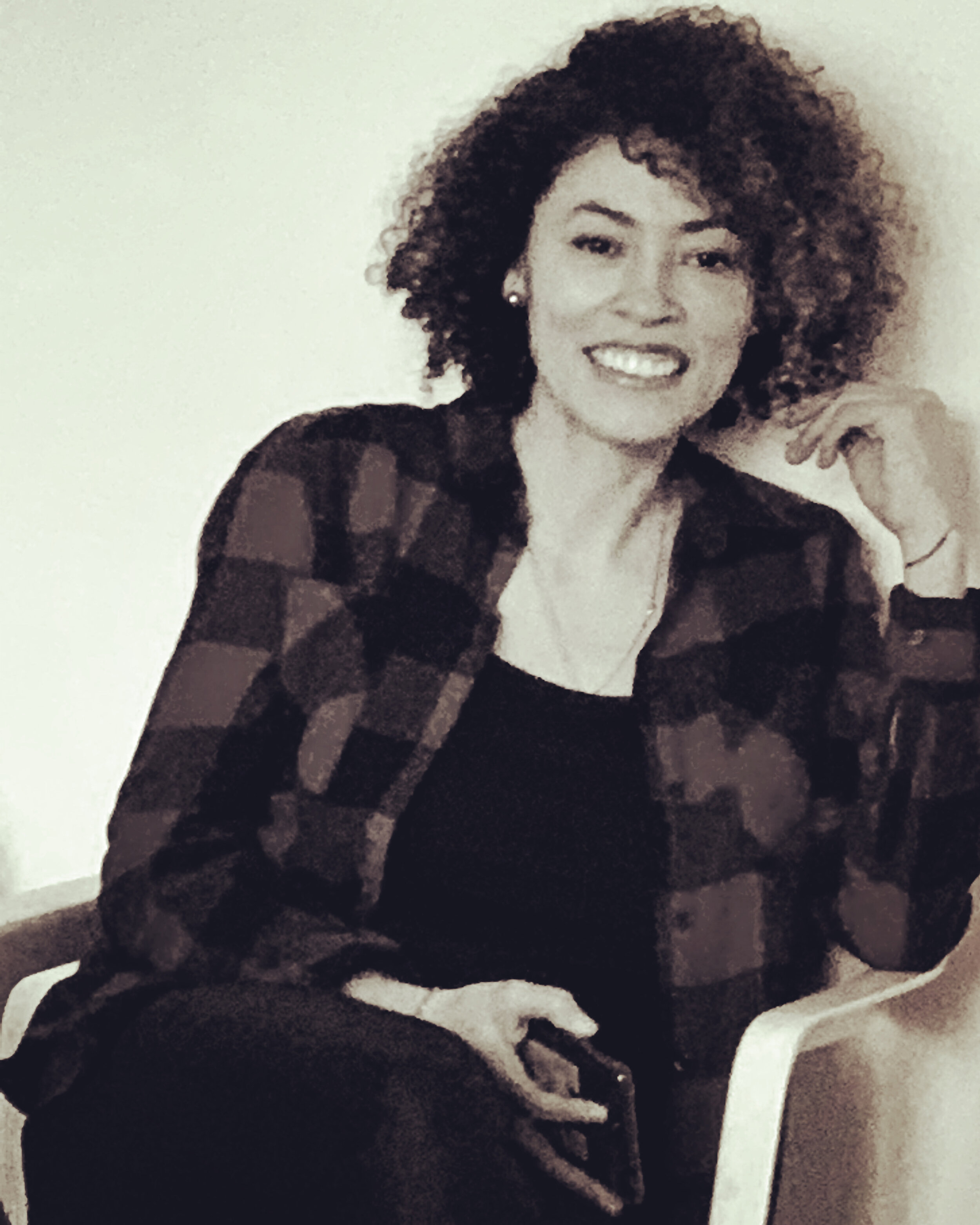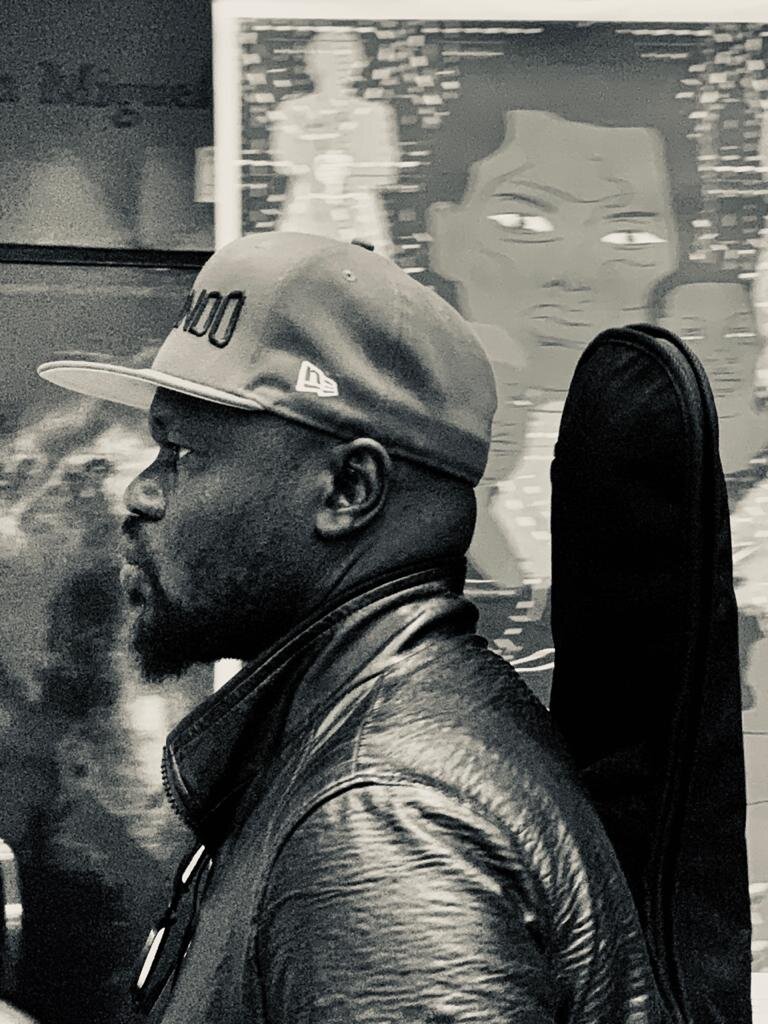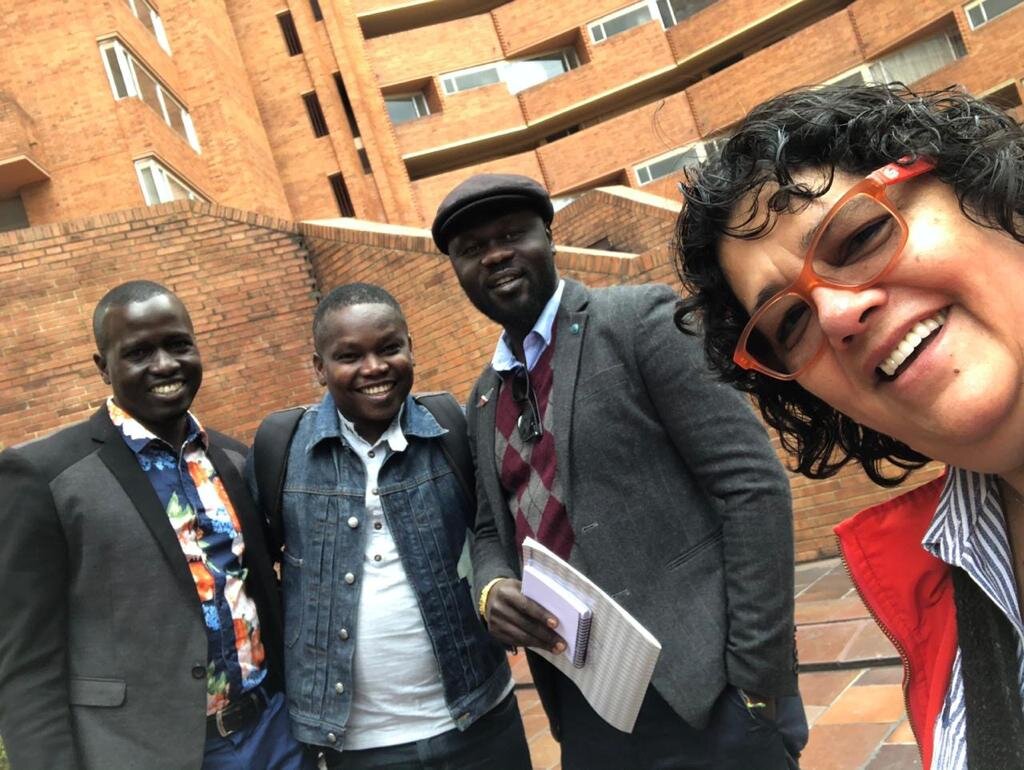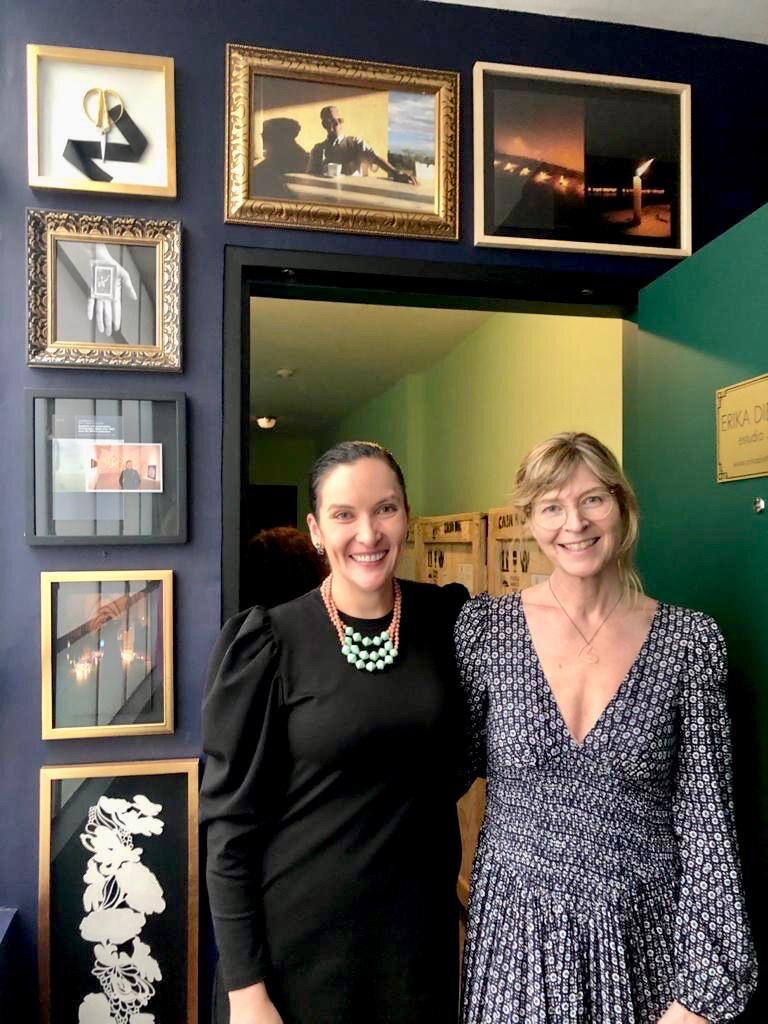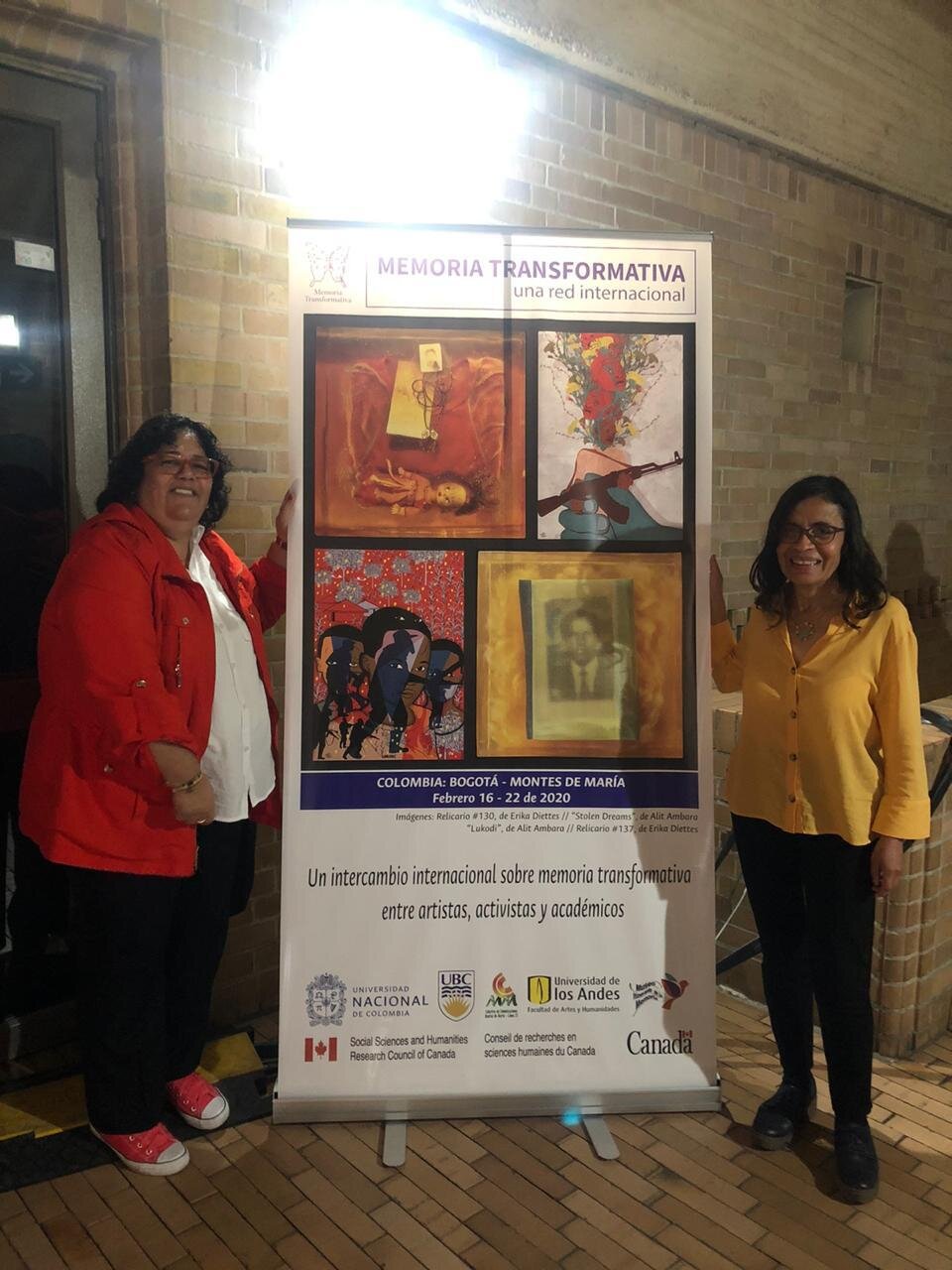INTER CAMBIO - CAMBIO INTERNO
La muerte, pese a ser nuestra única certeza, parece ser un desconocido y temido enemigo. En el momento de encontrarnos en el umbral de la pérdida inminente de un ser amado, ante la agonía, la incertidumbre de no ser capaces de imaginar cómo retomaremos nuestra existencia en medio de ese vacío, el duelo parece ser un estado insoportable e indeseable.
Sin embargo, a tres meses de la pérdida de mi padre, puedo decir que mientras transito con dolor, incertidumbre y, sobre todo, con mucha gratitud este nuevo camino, los días van pasando, unos más fáciles que otros, la cotidianidad rueda naturalmente sin mayor esfuerzo, las actividades simples y las complejas van recobrando, con suavidad, su espacio.
Death, despite being our only certainty, seems to be an unknown and feared enemy. In the moment of finding ourselves on the verge of an imminent loss of a loved one, facing the agony, the uncertainty of not being able to imagine how to again exist in the midst of this void; grief seems to be an undesirable and unbearable state of being.
Nevertheless, three months from the loss of my father, I can say that while I still walk with the pain, uncertainty and, above all, much gratitude for this new path; the days go by, some easier than others, everyday life naturally rolls on without much effort – simple and complex activities start to recover their space, softly.
Dentro de esos complejos días de duelo tuve la oportunidad de volver a reunirme, esta vez en Bogotá, con la comunidad de académicos, artistas y activistas de diferentes países del mundo con quienes hago parte del grupo de Transformative Memory de la Universidad de British Columbia en Canadá. Cada una de las personas que conformamos este colectivo vivimos con la plena convicción que hacer memoria desde nuestro lugar y experticia es una necesidad. Cada uno, desde su contexto, saberes y experiencia vital, ha vivido, estudiado y dedicado por lo menos la mitad de su vida a eso: a saber, a repetir una y otra vez lo que no debemos olvidar; nos dedicamos a recordar.
La pérdida natural de un ser querido ya implica transitar un dolor que pareciera imposible de soportar. Y, por otro lado, trabajar constantemente en temas de memoria, aquella memoria vinculada a la guerra y al dolor, no es una labor fácil, es una tarea que hasta a la persona más fuerte le doblega el espíritu. Pedir justicia en un mundo donde se cometen las injusticias, clamar por encontrar algún rastro de los desaparecidos a quienes habría que buscar en la profundidad de los ríos, en la inmensidad de los mares y en la densidad de las montañas es, casi, un acto de locura.
During those complex days of grief I had the opportunity to reunite – this time in Bogota – with the community of academics, artists, and activists from different parts of the world who make up the Transformative Memory group of the University of British Columbia (UBC) in Canada. Each one of the members is of the belief that doing memory work from our communities and from our expertise is a manifest need. Each one of us, from our own context, knowledges, and lived experiences has lived, studied, or at least dedicated at least half of their lives to this: to know, to repeat again and again what we should not forget; our labour is memory.
The natural loss of a loved one already implies to live with a pain that would seem impossible to bear. And, on the other hand, constantly engaging in issues of memory - especially memories of war and of pain – is no easy task. It is work that will bend the strongest of spirits. To demand justice in a world of injustice, to clamour to find any trace of the disappeared who may be in the depths of rivers, in the immensity of the seas, or the denseness of the mountain, is – almost - a fool’s errand.
Hace varios años entendí que esto era un imposible. Y que, por lo menos desde mi trabajo, enfocaría todos mis esfuerzos no en la búsqueda de justicia, ni de culpables, ni de razones; he dedicado toda mi capacidad en honrar y en dar forma al dolor que cada doliente carga desde la soledad de su intimidad; me he concentrado a darle una presencia a eso que se conjura únicamente en el silencio y en el vacío de los que ya somos portadores de ausencias.
Es en este sentido donde encuentro la Memoria como un acto transformador: en el momento en que la ausencia y la pérdida se hacen presentes en una forma visible, que la hacen COMÚN a todos. Relicarios me ha permitido ver cómo una madre doliente puede adoptar un Relicario de otra persona como suyo propio, hermanada por el dolor y el amor que ella misma reconoce. También me ha permitido presenciar espectadores que, a pesar de no compartir ese mismo contexto en el cual sucedieron los hechos, sienten que algún Relicario puede ser el suyo. Es ahí donde, para mí, hacer el ejercicio de traducción a través del arte tiene alguna ilusión de sentido.
Several years ago I came to understand this was impossible. And that, at least from my work, I would focus all my efforts not in the search for justice, nor perpetrators, nor answers; I have dedicated all my abilities to honour and give shape to the pain that each mourner carries from the solitude of their intimacy; I focused on giving a presence to that which is uniquely conjured in silence and in the void of those who of us who already carry these absences.
It’s in this sense that I find that memory is a transformative act: in the moment in which absence and loss become a visible form, which make them COMMON to all. ‘Relicarios’ showed me how a mourning mother can adopt the relic of another person as her own, linked as sisters by the pain and love that she herself sees. I have also been able to see spectators who, despite not sharing that context in which violent events occurred, they feel that some of the relics could belong to them. It’s there where, for me, carrying out the exercise of translation through art can give an illusion of meaning.
Es por esto que ser parte de este grupo de pensamiento, de talentos y de experiencias de vida tan diversas, tan complejas y tan distantes no es algo menor. Recibir en casa, en Bogotá, en nuestra dolida Colombia a este grupo de colegas fue motivo de inmensa alegría, para el cual dispuse de todas mis capacidades físicas y mentales, con el fin de ofrecer lo mejor de mí para este encuentro.
La mejor y la única forma posible que encontré para ello, fue que los RELICARIOS se iluminaran desde la intimidad de mi estudio y estuvieran allí, cumpliendo su razón de ser: iluminar, desde la absoluta obscuridad, la única verdad que sobrevivirá a la historia, a su reescritura y su futuro olvido: estas vidas, ahora ausentes, que toman forma y ocupan ese rayo de luz, son dolidas y lloradas en algún lugar de la geografía de nuestro país. Y cada vez que hay un espectador o un lector de lo que hoy se constituye como RELICARIOS, esa ausencia, sin duda, será recordada como un rastro indeleble en quienes estuvieron ante su presencia.
Así fue, para mí, este momento de reencuentro con mis amigos de antes, los que se sumaron en Uganda y los nuevos, quienes nos conocimos en esta nueva etapa del INTER-CAMBIO, esta vez en la intimidad de mi espacio vital, profesional y personal. Fue un momento brillante, amoroso, pues creamos un momento para RECORDAR.
This is why being part of this group with such diverse, complex, and different thoughts, talents, and lived experiences is no small thing. To welcome into my home in Bogota, in our pained Colombia, this group of colleagues was a great source of joy for which I employed all of my physical and mental capacity, with the end of offering the best of myself of for this exchange.
The best and only possible way I found for this was to illuminate RELICARIOS from the intimacy of my studio and to have them there, fulfilling it’s raison d'être: Shining, from total darkness, the only truth which survives history, to its re-writing and future forgetting: these lives, today absent, which take shape and occupy this ray of light, are mourned and cried for somewhere in our country. And each time there is a onlooker or reader of what today comprises RELICARIOS, this absence, without a doubt, will be remembered as an indelible mark by those whom shared their presence.
That’s how it was, for me, this moment of reuniting with old friends, those who joined us in Uganda and some new participants who we got to know in this new stage of the EX-CHANGE, this time from the intimacy of my professional and personal living space. It was a brilliant, loving, moment; we created a moment to REMEMBER.
Estas palabras las empecé a escribir durante la semana del 9 al 13 de abril de 2020. Estas fechas como todos sabemos, coinciden con la crisis mundial del COVID 19. Más allá de la crisis biológica que estamos viviendo, considero que esto es, también, un llamado para que cada uno de nosotros reflexionemos y nos pensemos en relación a cómo nuestra presencia de antes se suma a nuestra quietud física de ahora. La vida nos está diciendo que lo que tenemos que hacer en este momento es estar presentes en este presente. El ORATORIO cobra más relevancia, más presencia y más urgencia que nunca. Un trabajo que, tal vez, lo que más necesita es el sosiego de quienes estamos allí para hacerlo posible.
I began to write this words in the week of 9-13 of April 2020. These dates as we all know, coincide with the global COVID-19 crisis. Beyond this biological crisis we are all experiencing; I consider this is also a call for all of us to reflect on hour our presence of before joins our physical stillness in the present. Life is telling us that what we have to do is in this moment is to be present in the present. EL ORATORIO carries more relevance, presence, and urgency than ever before. A work which, perhaps, requires the quietude of those of us there to make it possible.
De nuevo, quiero expresar toda mi gratitud a la Dra Pilar Riaño y a la Dra Erin Baines por invitarme a formar parte de este grupo de pensamiento, investigación y acción, así como también, agradecerle a María Adelaida Bohórquez por toda la fortaleza y determinación de hacer este montaje con todo el cuidado que Relicarios precisa.
Again, I want to express my wholehearted gratitude to Prof. Pilar Riano and Prof. Erin Baines for inviting me to be a part of this group of thought, research, and action, as well as thanking Maria Adelaida Bohorquez for all her strength and determination in setting up the installation with all the care that RELICARIOS requires.












